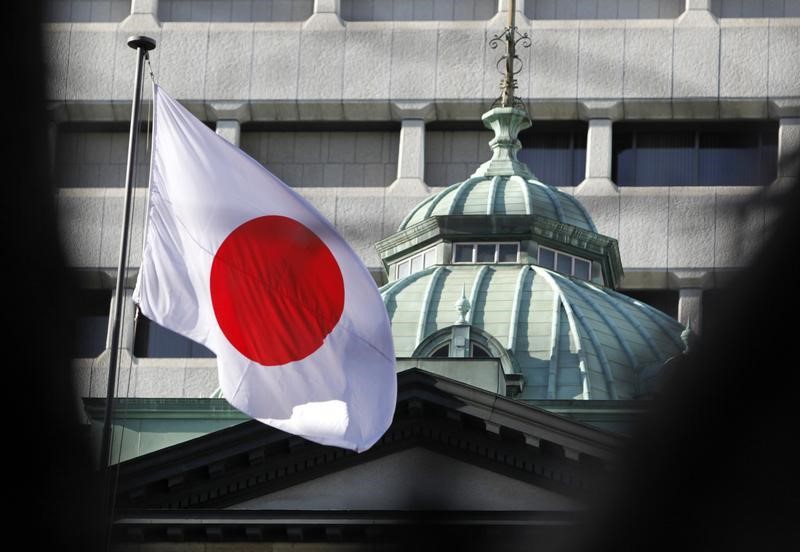Investing.com-- Japanese stocks fell sharply on Monday, while the yen hovered near one-month highs as media reports suggested the Bank of Japan could end its yield curve control policies by as soon as next week.
The Nikkei 225 index slid nearly 3% by the afternoon session, while the yen firmed 0.2% against the dollar and remained close to a one-month high hit last week.
The broader TOPIX stock index also lost as much as 3%.
A slew of media reports showed that the BOJ was close to ending its ultra-dovish negative interest rates and yield curve control policies, and could potentially do so at a meeting next week.
Policymakers are considering the move- which will be the bank’s first rate hike since 2007- on expectations of steep increases in wages this year.
An upward revision in gross domestic product (GDP) data on Monday- which showed the Japanese economy avoided a technical recession in the fourth quarter- also factored into fears of an early BOJ pivot.
Resilience in the Japanese economy gives the central bank more headroom to tighten policy.
Reuters reported that the timing of a hike will be a close call between the March 18-19 meeting or the April 25-26 meeting, with policymakers closely watching annual wage negotiations between major firms and labor unions.
"Today's data certainly supports the BoJ's view that the economy remains on a recovery path, but weak private consumption will be a concern for the BoJ as it mulls a change to its policy direction. We therefore see a higher chance of a policy change in April than this month," analysts at ING wrote in a note.
Higher wages are likely to elicit more immediate action from the BOJ, given that they herald increased consumption and stickier inflation in the coming months- both of which are key factors for the BOJ in considering a policy pivot.
Any policy tightening by the BOJ marks an end to nearly a decade of ultra-loose policy and stimulus measures enjoyed by Japanese businesses. A dovish BOJ was a key driver of the Nikkei’s stellar rally through 2023 and early-2024, which saw the stock index reach record-high territory above 40,000 points.
A BOJ pivot offers more relief to the yen, which was walloped by a growing gulf between Japanese and U.S. rates over the past two years. The yen hovered around the 147 level to the dollar on Monday.
